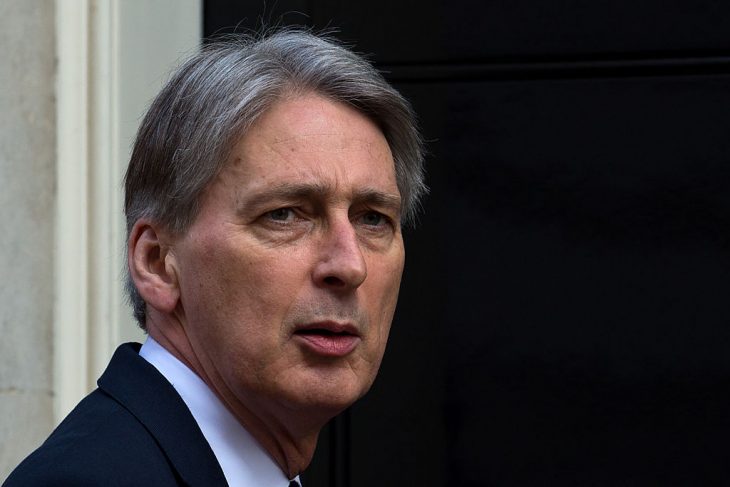You don’t earn a nickname like ‘Spreadsheet Phil’ for being a showman. But is Philip Hammond’s powder-dry demeanour and unwavering focus on the numbers actually his strong point? Yes, says the Sun, which suggests the chancellor’s cautious approach is exactly what Britain needs right now. The paper says that whereas Hammond’s predecessors would use their Budget announcements to reach for ‘popularity-boosting giveaways’, not so the current incumbent at No.11 who takes a more sensible approach in saying ‘now is not the time for a spending spree’. ‘We couldn’t agree more,’ says the Sun, which warns of ‘greater challenges’ ahead. There may be ‘Brexit storms’ approaching, the paper points out before arguing that it’s right not to spend money while ‘the Treasury is still borrowing £1.25billion a week to service Labour’s legacy of debt’. Hammond’s ‘smart, careful’ budget shows he is the chancellor Britain needs, the paper concludes.
Philip Hammond also gets the backing of the Daily Telegraph which praises the chancellor’s planned focus on ‘raising skills’ in this week’s Budget. With Brexit on the horizon, it’s vital that the country doesn’t ‘coast along’, argues the paper, saying that Hammond’s plan to invest billions into ‘vocational qualifications – or so-called ‘T-levels’ – is just the remedy. Britain has many reasons to be proud of its status as an academic power house with plenty of ‘scholarly achievements’. But the Telegraph says to up productivity in industry requires a fresh approach: taking ‘advantage of the UK’s greatest resource – its young people’. This means, the Telegraph concludes, offering those entering the world of work not just traditional subjects to study but also ‘the subjects of the future’. ‘Anything the Government can do to help is welcome,’ the Telegraph concludes.
The Daily Mail begins its leader by taking a shot at Tony Blair. The paper tears into the legacy of New Labour with its focus on ‘Education, Education, Education’, which, it says, kickstarted a ‘misguided social experiment’ which has left many young people with mounting student debt and ‘mediocre degrees in irrelevant subjects’. Now that Philip Hammond is in the Treasury, there’s hope that the penny has finally dropped that this approach is wrong, says the Mail, which hails ’T-levels’ for helping make ‘Britain ‘match-fit’ to compete in a post-Brexit world’, For the Mail, this type of change is yet ‘another welcome example of how the referendum vote has made ministers concentrate their minds’. But while there is praise for Hammond, the Mail rounds off its editorial with a warning for the Chancellor: tax rises for Britain’s self-employed would be a a step that ‘alienates’ traditional Tory voters. Hammond would take such a move ‘at his party’s peril’.
Meanwhile, the Guardian has a warning for ‘Brexit Britain’: the results from the Northern Ireland election ‘reveal very significant shifts’, the paper says, with support for the DUP slipping and Sinn Fein’s popularity on the up. The ‘bulk of this shift’ has been caused by former First Minister Arlene Foster – who refused to step down after being tangled up in the ‘cash for ash’ scandal. But Brexit is also a problem, according to the Guardian, which accuses the DUP of an ‘irresponsible’ stance in advocating a ‘Leave’ vote during the referendum. This sent ‘another message of disrespect to nationalists north and south’ and, what’s more, it’s an attitude ‘out of line with Northern Irish opinion, which voted to remain’. Theresa May also doesn’t escape blame in the Guardian’s editorial, which accuses the PM of making the consequences of Brexit in Northern Ireland worse by saying Britain will leave the single market. Inevitably, the Guardian says, this will make a ‘hard border’ more likely: ‘a disaster for both parts of Ireland,’ says the Guardian.







Comments